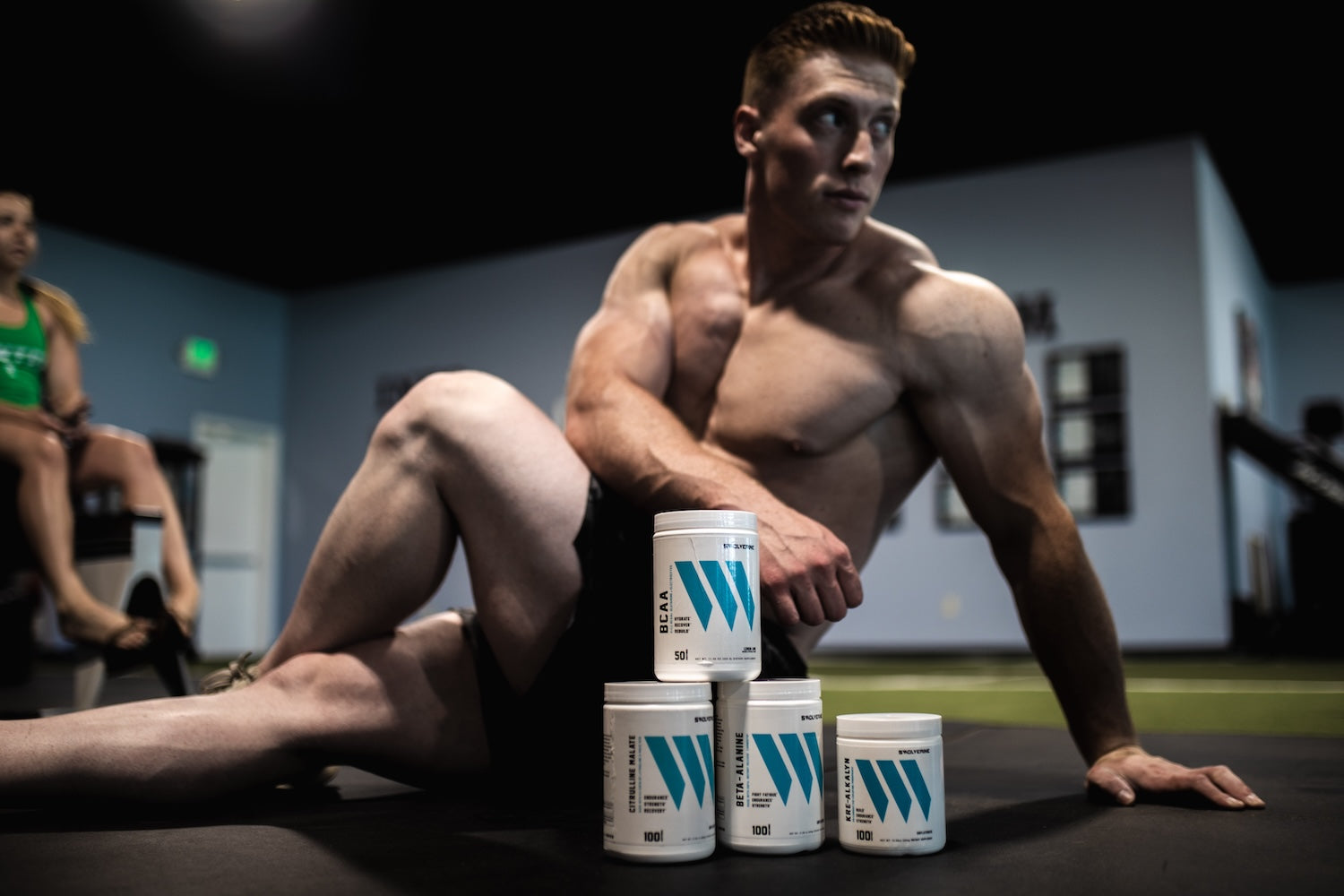Are you a coffee enthusiast looking to power up your morning routine with a boost of creatine? The age-old debate surrounding the combination of these two powerhouse supplements continues to intrigue fitness enthusiasts and caffeine aficionados alike. In this comprehensive guide, we delve deep into the pros and cons of mixing creatine with your morning coffee.
For those seeking to enhance their workout performance and muscle gains, the idea of blending creatine with their daily caffeine fix may seem like a game-changer. But what does the research say about this unconventional pairing? Join us as we unravel the science behind this trend to help you make an informed decision on whether this combination is right for you.
Whether you're a gym-goer looking to maximize your exercise regimen or a coffee lover curious about the potential benefits, this guide will provide you with the insights you need to determine if mixing creatine with your morning coffee is the ultimate hack for your wellness journey.
The Role of Creatine in Fitness and Muscle Building
Creatine is a naturally occurring compound found in small amounts in certain foods such as red meat and seafood, and is also synthesized in the liver, kidneys, and pancreas from amino acids like arginine, glycine, and methionine. It plays a crucial role in cellular energy production, particularly during high-intensity, short-duration activities.
How Creatine Supports Energy Production and Performance
When muscles require rapid energy—like during sprinting, heavy lifting, or HIIT—creatine is converted into phosphocreatine. This compound donates a phosphate group to regenerate adenosine triphosphate (ATP), the body’s primary energy currency, which becomes rapidly depleted during intense effort.
Supplementing with creatine increases the phosphocreatine stores in muscle, allowing for more rapid ATP regeneration. This mechanism supports improved strength, power output, and muscular endurance, making it a popular and well-researched ergogenic aid among athletes and fitness enthusiasts alike
(Kreider et al., 2017).
Creatine and Muscle Mass: Gains Backed by Science
One of the most well-documented benefits of creatine is its ability to increase lean body mass. This occurs due to a combination of intracellular water retention, which gives muscles a fuller appearance, and enhanced muscle protein synthesis that supports hypertrophy.
A meta-analysis published in the Journal of Strength and Conditioning Research concluded that creatine supplementation combined with resistance training leads to significantly greater gains in muscle mass and strength compared to training alone
(Branch, 2003).
Additionally, creatine may help reduce muscle damage and inflammation post-workout, potentially enhancing recovery and allowing for higher training frequency
(Rawson & Volek, 2003).
Cognitive Benefits of Creatine: Beyond the Gym
While primarily celebrated for its impact on physical performance, creatine also shows promise for cognitive enhancement. Emerging research suggests that creatine may help buffer mental fatigue, improve memory, and support overall brain function—especially during periods of sleep deprivation or mental stress.
In a study conducted by Rae et al., published in Proceedings of the Royal Society B, creatine supplementation was shown to significantly improve working memory and intelligence test scores in young adults
(Rae et al., 2003).
This dual-role functionality positions creatine as a multifaceted supplement for both mental and physical well-being.
Innovative Ways to Take Creatine: Mixing with Coffee?
Creatine monohydrate is traditionally taken with water or juice, but many have started mixing it into coffee or pre-workout shakes for added convenience. While caffeine and creatine were once thought to have conflicting effects, recent research suggests they can coexist effectively without impairing performance or absorption
(Trexler et al., 2016).
Combining creatine with warm beverages like coffee may also improve solubility, although heat does not significantly degrade creatine unless boiled for prolonged periods. For optimal absorption, a daily dose of 3–5 grams is generally recommended, taken consistently over time.
Understanding the Effects of Coffee on the Body
Coffee is one of the most widely consumed beverages in the world, praised not only for its bold flavor but also for its energizing effects—largely due to its caffeine content. Caffeine is a natural stimulant that can enhance mental alertness, improve focus, and provide a much-needed energy boost, making it a staple in many morning routines.
How Caffeine Affects the Central Nervous System
Once ingested, caffeine is rapidly absorbed into the bloodstream and travels to the brain, where it blocks the inhibitory neurotransmitter adenosine. This leads to increased firing of neurons and the release of dopamine and norepinephrine, promoting heightened alertness and mood
(Nehlig, 2016; Neuroscience & Biobehavioral Reviews).
These effects make caffeine a go-to performance enhancer for athletes, students, and professionals alike. Additionally, caffeine increases heart rate and can improve reaction time and cognitive performance during demanding tasks or workouts.
Coffee’s Nutritional Value and Health Benefits
Beyond caffeine, coffee is rich in polyphenols and antioxidants such as chlorogenic acid, which may combat oxidative stress and inflammation. Studies have linked moderate coffee consumption to a reduced risk of several chronic diseases, including type 2 diabetes, Parkinson’s disease, and cardiovascular disease
(Hu et al., 2018; Progress in Cardiovascular Diseases).
Regular coffee intake has also been associated with improved metabolic rate and increased fat oxidation, making it a helpful tool for weight management and fat loss when paired with exercise and proper nutrition
(Acheson et al., 1980; American Journal of Clinical Nutrition).
However, excessive caffeine can lead to adverse effects like anxiety, restlessness, digestive discomfort, and insomnia—especially when consumed in large quantities or late in the day. Moderation remains key for balancing the benefits and minimizing potential side effects.
The Interaction Between Coffee and Exercise
The role of caffeine in sports performance is well-documented. It can enhance endurance, strength, and even reaction time, making it a popular ingredient in pre-workout supplements. Research shows caffeine can delay fatigue and reduce perceived exertion, allowing for more effective workouts
(Goldstein et al., 2010; Medicine & Science in Sports & Exercise).
But as athletes explore new supplementation strategies, many are combining coffee with creatine—a well-researched supplement known for its role in ATP regeneration and muscle growth. Understanding how these two substances interact can help optimize both energy levels and training performance.
Pros of Mixing Creatine with Coffee
A Convenient Morning Routine for Supplementation
For individuals who already consume coffee each morning, adding creatine can simplify their supplement stack. Creatine monohydrate is flavorless and dissolves easily, making it an effortless addition to a warm beverage. This approach supports consistency and reduces the need for separate drinks or supplements throughout the day.
Potential Synergistic Effects on Performance
Some studies suggest that caffeine may enhance the ergogenic effects of creatine when used together, especially in high-intensity or repeated sprint workouts. Caffeine may facilitate faster phosphocreatine resynthesis, allowing muscles to recover more efficiently between bouts of exercise
(Trexler et al., 2016; Journal of the International Society of Sports Nutrition).
This synergy could provide athletes with an edge in both power output and training volume—two key drivers of strength and hypertrophy.
Enhanced Energy and Reduced Perceived Effort
Caffeine can help reduce the sensation of effort during workouts, meaning you can push harder for longer. When paired with creatine, which supports intracellular hydration and muscle performance, the combo may lead to better training quality and muscle adaptation. This makes the mix particularly attractive for individuals looking to boost both endurance and size.
Cons of Mixing Creatine with Coffee
Risk of Dehydration
Caffeine is known for its mild diuretic properties, which could increase fluid loss and potentially affect creatine's efficacy. Since creatine relies on adequate hydration to function optimally—by drawing water into the muscle cells—this interaction may blunt some of its benefits if proper hydration isn’t maintained
(Maughan & Griffin, 2003; The American Journal of Medicine).
To mitigate this risk, users should increase their water intake throughout the day, especially when combining caffeine and creatine.
Digestive Sensitivity and GI Distress
Both caffeine and creatine may cause gastrointestinal discomfort in some individuals. Symptoms can include bloating, cramping, or loose stools—especially when taken in large doses or on an empty stomach. Combining the two may intensify these effects, making it important to monitor individual tolerance and adjust timing or dosage accordingly.
Complicated Timing for Maximum Effectiveness
Creatine is most effective when taken consistently, often post-workout, while caffeine is typically consumed pre-workout. Mixing the two could blur these timing windows, potentially leading to suboptimal results if not carefully managed. Athletes must consider when they train, how they dose their supplements, and how their body responds to each compound to ensure both are working effectively.
How to Properly Combine Creatine with Coffee
Combining creatine with coffee can offer both convenience and performance benefits—but only if done correctly. With strategic planning, it’s possible to maximize the advantages of both supplements while minimizing potential drawbacks.
Choose the Right Form of Creatine
The most studied and effective form of creatine is creatine monohydrate. It's not only affordable and widely available but also supported by decades of research validating its safety and efficacy for increasing strength, lean mass, and recovery
(Kreider et al., 2017; Journal of the International Society of Sports Nutrition).
When mixing with coffee, opt for micronized creatine monohydrate, as it dissolves more easily, helping avoid any gritty or chalky texture.
Control Your Coffee Strength
Aim for moderate caffeine levels by sticking to a standard 8–12 oz cup of coffee rather than high-caffeine alternatives like triple espressos or energy drinks. Excessive caffeine intake can increase the risk of dehydration, irritability, and digestive upset, which may interfere with the benefits of creatine.
Mixing 3–5 grams of creatine into your coffee is the generally recommended daily dose for most users, ideal for both loading and maintenance phases.
Ensure Proper Mixing and Timing
To avoid texture issues, stir the creatine thoroughly into hot coffee or use a blender to improve solubility. Consume your creatine-coffee blend about 30 minutes before your workout, when caffeine will provide an energy boost and creatine can begin to support ATP production.
Hydration is essential—caffeine may increase fluid loss, while creatine relies on intracellular water retention for performance. Make sure to increase your water intake throughout the day.
Studies and Research on the Combination
Conflicting Evidence on Performance Outcomes
Research on the simultaneous use of creatine and caffeine has produced mixed outcomes. A study published in the Journal of Applied Physiology found that caffeine may impair creatine's performance-enhancing effects, possibly due to opposing effects on muscle relaxation time
(Vandenberghe et al., 1996; Journal of Applied Physiology).
However, these findings are not universally accepted. The methodology and dosage used in this study have been critiqued by other experts.
Potential Synergistic Benefits
More recent studies suggest the combination may actually support performance in short-duration, high-intensity activities, like weightlifting and sprinting. Caffeine can increase power output and reduce perceived exertion, while creatine replenishes ATP stores for muscular contraction
(Trexler et al., 2016; JISSN).
Ultimately, individual response plays a key role. For some, the two may work synergistically; for others, the combination may result in digestive discomfort or performance plateaus.
Alternatives to Mixing Creatine with Coffee
Separate Supplement Timing
Instead of combining them, consider taking creatine and caffeine at different times. For example, drink your coffee 30 minutes pre-workout, then take creatine post-workout with a shake or meal. This can help minimize potential gastrointestinal discomfort while still allowing both to be effective.
Use a Pre-Workout That Combines Both
Many reputable pre-workout formulas now combine moderate doses of caffeine (100–200 mg) with 3–5 g of creatine, along with other ingredients like beta-alanine or L-citrulline for added endurance and pump. These blends are formulated to optimize performance without the guesswork of home-mixing.
Whole Food Sources of Creatine and Caffeine
Natural alternatives include:
-
Creatine: Red meat, pork, tuna, and salmon
-
Caffeine: Green tea, dark chocolate, yerba mate, and guarana
While food sources typically provide lower doses, they can support baseline intake in a whole-food-based diet.
Recommendations from Fitness Experts
Personalization Is Key
According to sports nutrition specialists, individual tolerance to both creatine and caffeine should guide whether you combine them. Some athletes thrive on the combo, while others experience bloating, jitteriness, or reduced benefits.
Start with small doses and evaluate how your body responds.
Supplements Should Complement, Not Replace, Your Diet
Experts stress that supplements enhance, not replace, a balanced nutrition plan. Focus on:
-
Eating nutrient-dense whole foods
-
Staying hydrated (especially when supplementing creatine and caffeine)
-
Consuming adequate protein to support recovery and muscle growth
Consult a Coach or Registered Dietitian
A certified personal trainer, registered dietitian, or sports nutritionist can help tailor your strategy. They’ll evaluate your goals, training intensity, and lifestyle to recommend the best timing, dosing, and stacking of supplements for your needs.
Bottom Line: Creatine and coffee can be a powerful duo—but only when combined thoughtfully. Pay attention to your body, stay hydrated, and stick with evidence-based practices for the best results in strength, endurance, and recovery.
Conclusion and final thoughts
The decision to mix creatine with your morning coffee ultimately depends on individual preferences, fitness goals, and tolerance levels. While there are potential benefits to this combination, including convenience and enhanced workout performance, it’s essential to be mindful of hydration and digestive comfort. The mixed research surrounding the efficacy of combining these two supplements highlights the need for further studies to establish clearer guidelines.
For those who enjoy the ritual of coffee and wish to incorporate creatine into their regimen, experimenting with the combination can offer insights into how your body responds. However, it’s equally valid to explore alternatives, such as taking supplements separately or focusing on whole food sources of these compounds. By approaching supplementation with an informed and individualized mindset, you can develop a strategy that best supports your unique fitness journey.
In the end, whether you choose to mix creatine with your morning coffee or take a different route, remember that consistency, proper nutrition, and a well-structured workout routine are key components to achieving your fitness aspirations. Always stay attuned to your body's signals, and prioritize a balanced approach to health and wellness as you navigate your fitness journey.
Find similar articles:
Supplements












